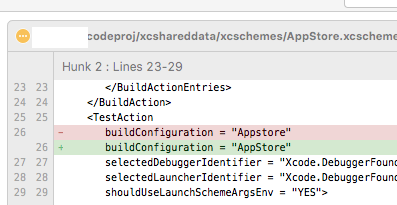I have a workspace with a project which links with the static libraries in another project (which is also in the workspace). It's a problem in Kobold2D I haven't been able to resolve, even though I understand the cause, and I suppose it's similar to this question.
The project targets and the static library targets all have the Debug and Release build configurations. All is well.
Now someone adds a new build configuration in the project and names it Ad-Hoc for example. Now the project's target builds the Ad-Hoc configuration, however the static libraries have no such configuration. Apparently they then default to building the Release configuration.
At the end, when the linker is supposed to bring everything together, it fails:
ld: library not found for -lbox2d-ios
Command /Developer/Platforms/iPhoneOS.platform/Developer/usr/bin/clang++ failed with exit code 1
For forcibly loaded libraries via -force_load $(BUILT_PRODUCTS_DIR)/libSomeLib.a the error is similar but says "file not found". I should note that the library "libbox2d-ios.a" is in the "link binary with libraries" build phase list.
Obviously the problem is that the linker is assuming that the libraries are in the Ad-Hoc-iphoneos folder in the BUILT_PRODUCTS_DIR while they are actually in the Release-iphoneos folder because they have no Ad-Hoc build configuration.
How can I slap the linker in the face and tell him to get the libraries where they are? Preferably I'm looking for a solution that works for both cases, ie libraries added the standard way (link binary with libraries build phase) and libraries that need an additional -force_load to work.
I'm hoping that there's some way to:
- force libraries to be placed in the build configuration folder of the app's target
- run a post-compile & pre-link script that copies each library to the build configuration folder
- specify a relative path to the libraries
- use a different macro other than $BUILT_PRODUCTS_DIR for -force_load
- a linker flag like -WTFmake-all-problems-go-away
Excuse me, but I have to say this … ARGH! :)

